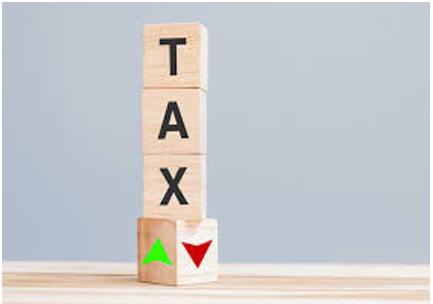INP-WealthPk
Moaaz Manzoor
Pakistan’s persistent tax shortfall, now ballooning to Rs833 billion in the first 10 months of FY25 despite aggressive tax measures, casts a long shadow over its economic recovery and growth ambitions, reports WealthPK.

The IMF has already revised Pakistan’s annual tax target downward, reflecting deep-rooted structural flaws in revenue mobilization. Income tax was the only head where targets were surpassed, mainly due to the overburdening of the salaried and corporate sectors. However, significant lags in sales tax, customs, and excise collections, attributed to weak productivity, subdued imports, and collusion-induced leakages, reveal deeper systemic failures, demanding more than short-term fiscal tinkering.
In this context, speaking to WealthPK, tax expert Dr. Ikramul Haq warned that unless Pakistan overhauls its tax system, the current trajectory of missed targets and unsustainable public finances will only worsen. “We need a paradigm shift in our entire tax system,” he said, emphasizing the need for a simplified, fair, and broad-based regime.
Dr. Haq proposed a flat tax model, including a 10% income tax on all individual incomes, with a minimum alternate tax on net wealth exceeding Rs50 million, 20% corporate tax, and a harmonized 8% sales tax on goods and services. “Such a framework, supported by effective enforcement and digitization, can generate up to Rs30 trillion in tax revenue annually,” he added.
According to Dr. Haq, the current tax policy disproportionately burdens the formal sector while allowing high-potential informal segments like retailers, landlords, and traders to escape the net. “The entire structure suffers from fragmentation, inefficiencies, and rent-seeking behavior. We need to federalize tax collection under a single National Tax Agency (NTA), which can unify VAT on goods and services and reduce the compliance cost by eliminating duplication between federal and provincial authorities,” he asserted.
To realize long-term growth above 5% annually, he stressed that tax collection must go hand-in-hand with the delivery of essential services like healthcare, education, housing, and social security — the hallmarks of a functional social contract. Syed Immad Uddin Hussaini, a researcher and economist at the Federation of Pakistan Chambers of Commerce & Industry (FPCCI), discussed Pakistan's upcoming budget challenges with WealthPK.
Hussaini noted that with economic growth remaining sluggish and a forecast revenue deficit of PK700 billion, the next budget must strike a delicate balance between fiscal consolidation and stimulating growth, especially amidst the ongoing IMF talks. Hussaini emphasized the need for a prudent yet progressive tax policy to help achieve the revenue targets without undermining the fragile recovery.
“Widening the tax base remains a continuous priority,” he stated, highlighting the importance of incorporating the informal sectors into the tax net through improved documentation and more vigorous compliance enforcement. He added that ineffective and distorting tax incentives should be reexamined and rationalized to enhance fiscal space. According to him, improving tax administration, advancing digital infrastructure for better tax collection, and curbing revenue leakages are essential to improving the country’s revenue performance.
Additionally, Hussaini proposed considering sectoral taxation in resilient or growing sectors, such as telecoms, banking, and services. Finally, he stressed that revenue mobilization efforts must be designed to safeguard the interests of low-income people while aligning with Pakistan’s medium-term growth and reform objectives under the IMF program.
Credit: INP-WealthPk













